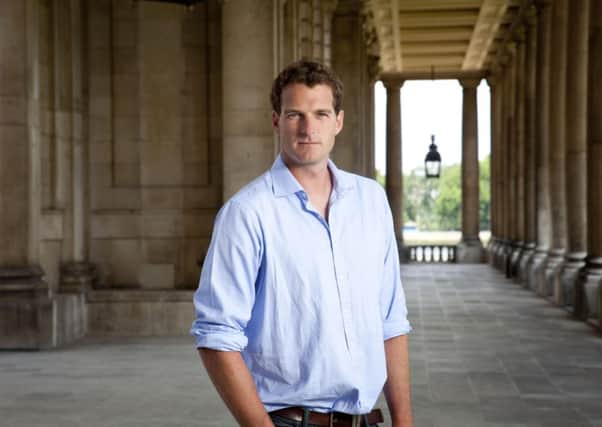Snow in the air as archaeologists look to brighter future


WHETHER it’s wandering around a Roman fort or exploring the nooks and crannies of some medieval castle, we cherish our heritage.
This fascination with our past can be seen in the popularity of TV shows like Time Team and Coast which, with the aid of modern technology, have helped bring history to life.
Advertisement
Hide AdAdvertisement
Hide AdBut while archaeology might be more prosaic than Indiana Jones would have us believe, it can still provide the odd Hollywood moment.
Take the discovery of Richard III’s skeleton beneath a supermarket car park. As well as making headlines around the world and sparking a battle between Leicester and York, both of which want his remains interred in their city, the find has, more importantly, helped answer several questions about the former king.
Prior to the discovery of the bones some historians felt his negative portrayal as a hunch- back was part of a campaign to discredit him. But subsequent tests revealed he did actually have a curved spine, proving the fictitious portraits had more than some semblance of truth.
These kind of high-profile discoveries might be few and far between but up and down the country all kinds of gems are being unearthed. Earlier this month work began to remove a limestone sarcophagus unearthed at Lincoln Castle, which may contain the remains of a “Saxon king or bishop”. The unopened box, thought to date from AD 900, was found by archaeologists alongside the remains of a previously unknown church earlier this year.
Advertisement
Hide AdAdvertisement
Hide AdIt’s an exciting find but it comes at a time when archaeologists fear their work is under threat. In the last five years, the number of people employed in the archaeological sector in the UK has reduced by a third, dropping from around 7,000 to just 4,000 and there are fears that widespread cuts to archaeology, heritage and museum services are creating black holes in planning protection and putting our archaeological heritage at risk.
It’s something the Council for British Archaeology (CBA) is keen to address and yesterday the charity unveiled Dan Snow as its president. The historian says he hopes to raise public awareness. “The CBA does great work in getting people into history in a hands-on and engaging way. We have some serious challenges ahead of us and in this role I intend to make the UK sit up and take notice of the threat to our heritage which is growing every day – and get more active in its defence.”
Dr Mike Heyworth, director of the CBA, hopes Snow will help ensure “our voice is heard”.
“The UK’s archaeological heritage is under threat from a number of different sources but at the same time there’s huge public interest in it and we need to mobilise that interest to fend off the threats,” he says.
Advertisement
Hide AdAdvertisement
Hide AdOne of the main threats he says is from the proposed local authority cuts. Much of the archaeological work that goes on in this country goes through the local authority planning system, with councils employing specialist archaeological advisers.
However, Dr Heyworth says with local authorities looking to make savings these are the kind of areas being targeted, which could have far reaching consequences to our heritage.
“Archaeological sites could be damaged or lost forever,” he warns. “There are some sites of national importance that are only protected through the planning system, they aren’t protected through statute, and without specialist advice archaeology is quite vulnerable.”
Government cuts aren’t the only threat. There are concerns about agricultural machines going deeper into the land as well as people using ever more invasive metal detectors.
Advertisement
Hide AdAdvertisement
Hide AdNot to mention the controversial HS2 scheme, which could affect some areas of potential historical interest. “Any development that cuts a swathe through the countryside is going to impact on archaeological sites. That’s why we need the funding to make sure we get the knowledge out first.”
The majority of archaeological digs in this country are funded by developers who pay for the work.
But Dr Heyworth hopes Snow’s appointment will help rally the public into action and highlight what we risk losing. “We want people asking their councillors and MPs questions. People like the historic sites at the end of their street, or which they pass on their way to work. They’re an important part of the historical landscape and people care about them, they don’t want them to be lost.”